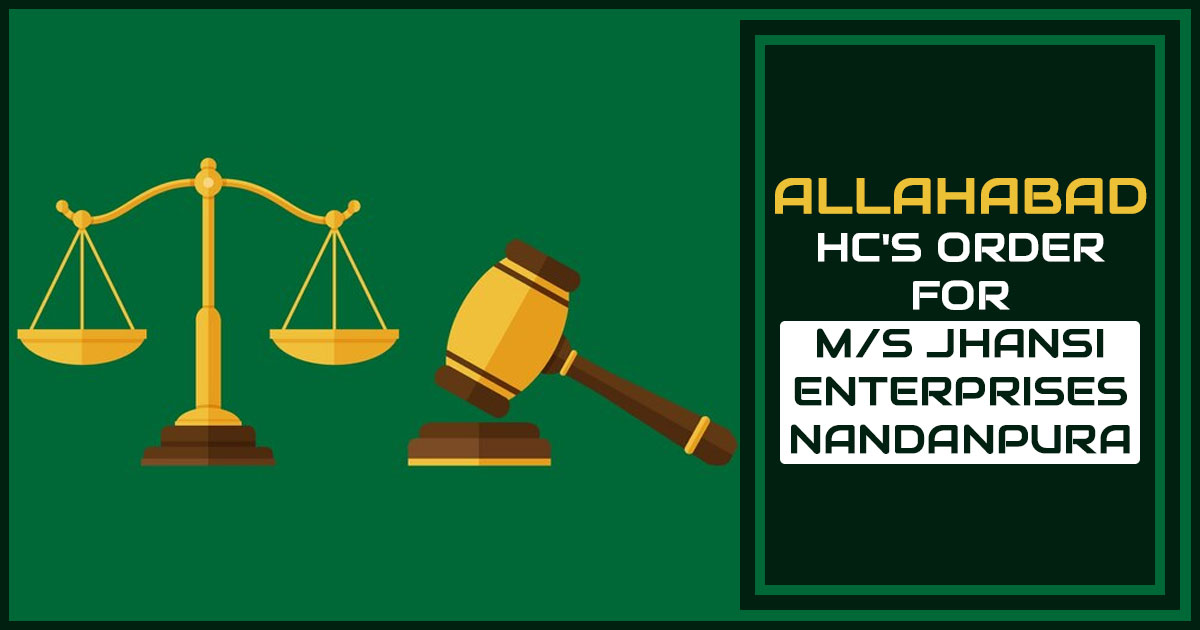
The Allahabad High Court ruled that when the Goods and Services Tax Regime was established in 2017, issues in downloading GST e-way bills were there. The difficulties were fixed and from April 2018 there were no problems in generating the same.
Justice Shekhar B. Saraf ruled that keeping the penalty order under Section 129 of the GST Act, 2017 for the production of the e-way bills after interception.
“Mere furnishing of the documents subsequent to the interception cannot be a valid ground to show that there was no intention to evade tax. There must be some reasonable grounds to justify the non-production of documents at the proper time.”
Background Information
The applicant is a registered dealer, TMT Bars (sariya) to one M/s Sahai & sons, Orai vide Tax Invoice where the vehicle number was stated as MP 16H 1584 for transportation of goods. When the goods were seized, an order for physical verification or inspection of the conveyance, goods & documents under Section 68(3) of the Act was passed on the foundation that no documents were produced during interception.
After the issuance of the order for physical verification, the applicant produced the tax invoices and e-way bill. The authority denied the e-way bill as it was generated after the interception and a penalty under Section 129(3) was levied. The appeal filed via the petitioner was also dismissed.
Petitioner’s counsel claimed that because of the unavailability of the computer operator liable for generating the e-way bill, the goods were dispatched by the dispatcher accidentally. The e-way bill was downloaded at 2:45 pm whereas the interception took place at 3:59 pm on the same day it contended, therefore, it was submitted that the e-way bill was generated before interception.
Read Also: Allahabad HC: No Penalty U/S 129(3) When There is Clear Evidence of Intentional GST Evasion
Section 129 of the GST Act applies only to goods in transit and to stationary vehicles, similar to that of the petitioner, it claimed. No intention to evade tax was there, hence penalty under Section 129 of the Act could not be charged.
The respondent’s counsel claimed that Section 129 includes any goods or conveyance in transit that should be accompanied by appropriate documentation under the GST Act and Rules. It was furnished that the goods of the applicant were in transit without being accompanied via the e-way bill and tax invoices which is a breach of the Act and precisely for Rule 138 which requires that goods in transit should be accompanied by the e-way bill.
High Court Ruling
The e-way bill has not been produced by the applicant during interception as of specific issues and in these cases, it was needed to watch if there was real intent to evade tax on the applicant’s end, the court noted. As per the Court goods not accompanied by both tax invoices and e-way bill is not a typical blunder. It diverts the load on the taxpayer to show that there was no tax evasion intent.
The Court leaned on its previous decision in M/s Akhilesh Traders V. State of U.P. and three others in which it ruled that thought of tax evasion intention emerges where goods are not accompanied by tax invoices and e-way bills.
The Allahabad High Court said that the petitioner’s contention that the truck was parked at the godown for the unloading of goods was unsustainable since it was not backed by particulars. As the applicant loses to deny the opinion for tax evasion intention, the Court sustained the penalty under Section 129 of the GST Act.
| Case Title | M/S Jhansi Enterprises Nandanpura |
| Case No. | WRIT TAX NO. – 1081 OF 2019 |
| Date | 21.02.2024 |
| For the Petitioner | Mr. Shubham Agrawal |
| For the Respondents | Mr. Ravi Shanakar Pandey |
| Allahabad High Court | Read Order |